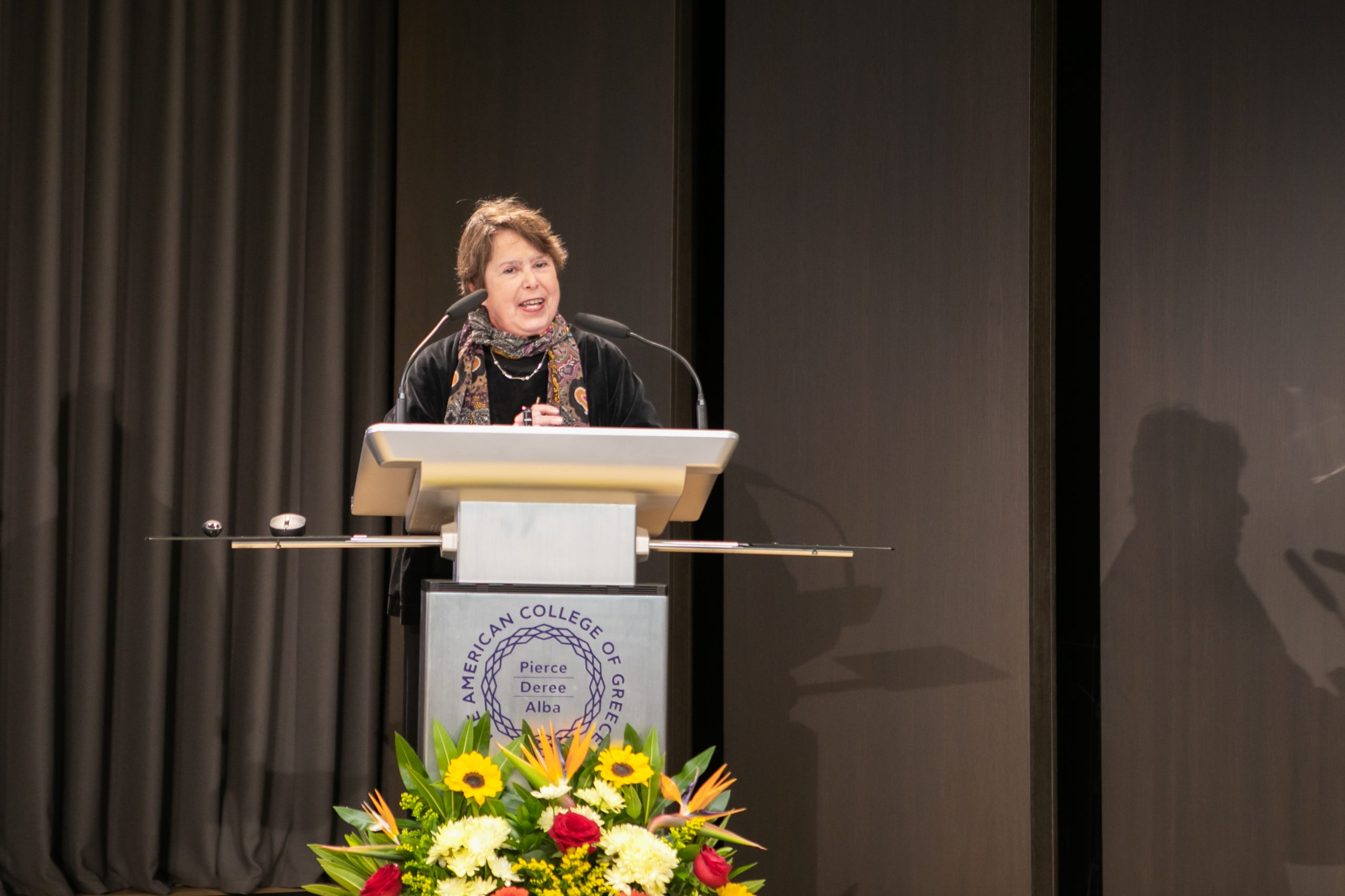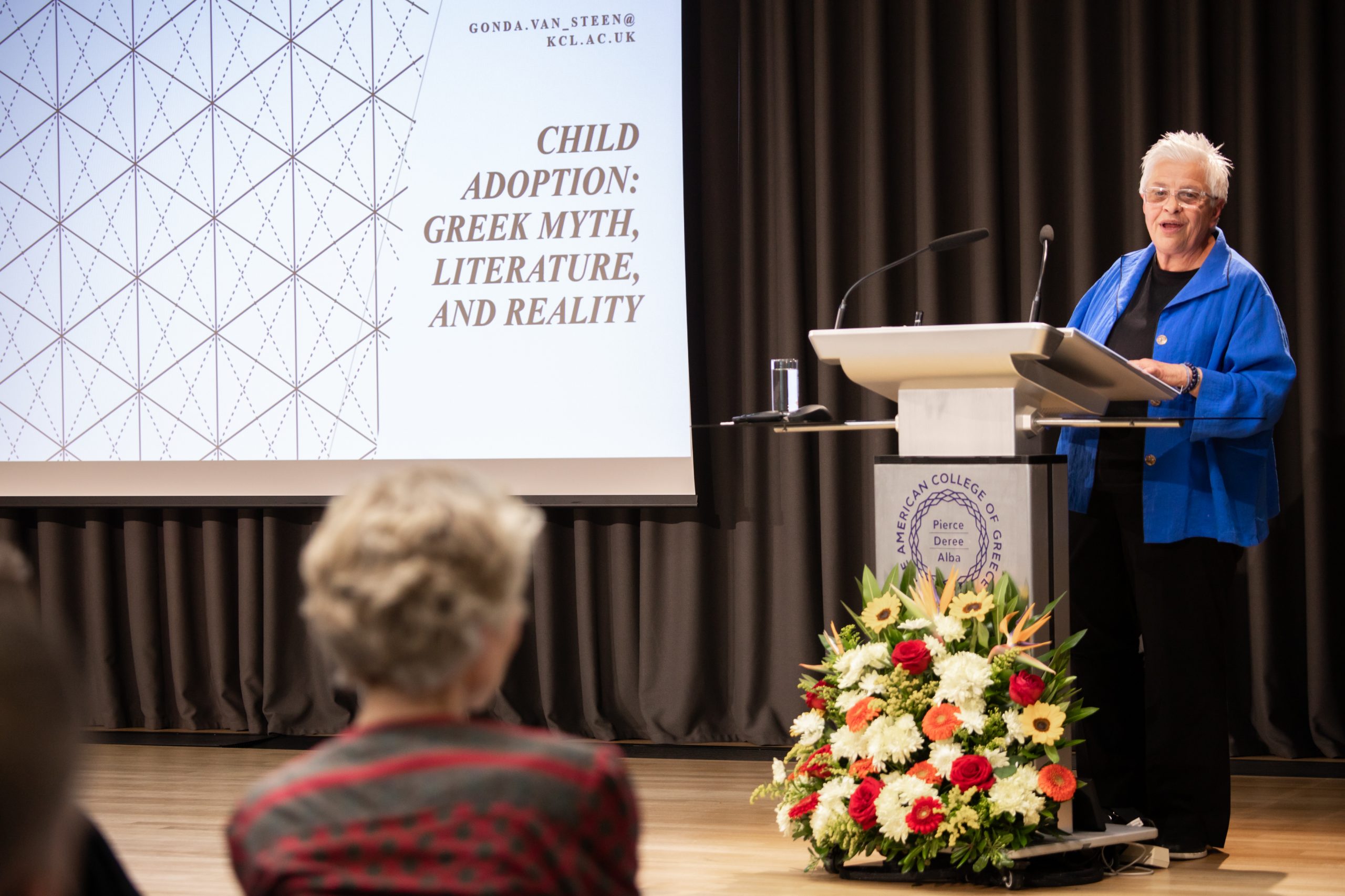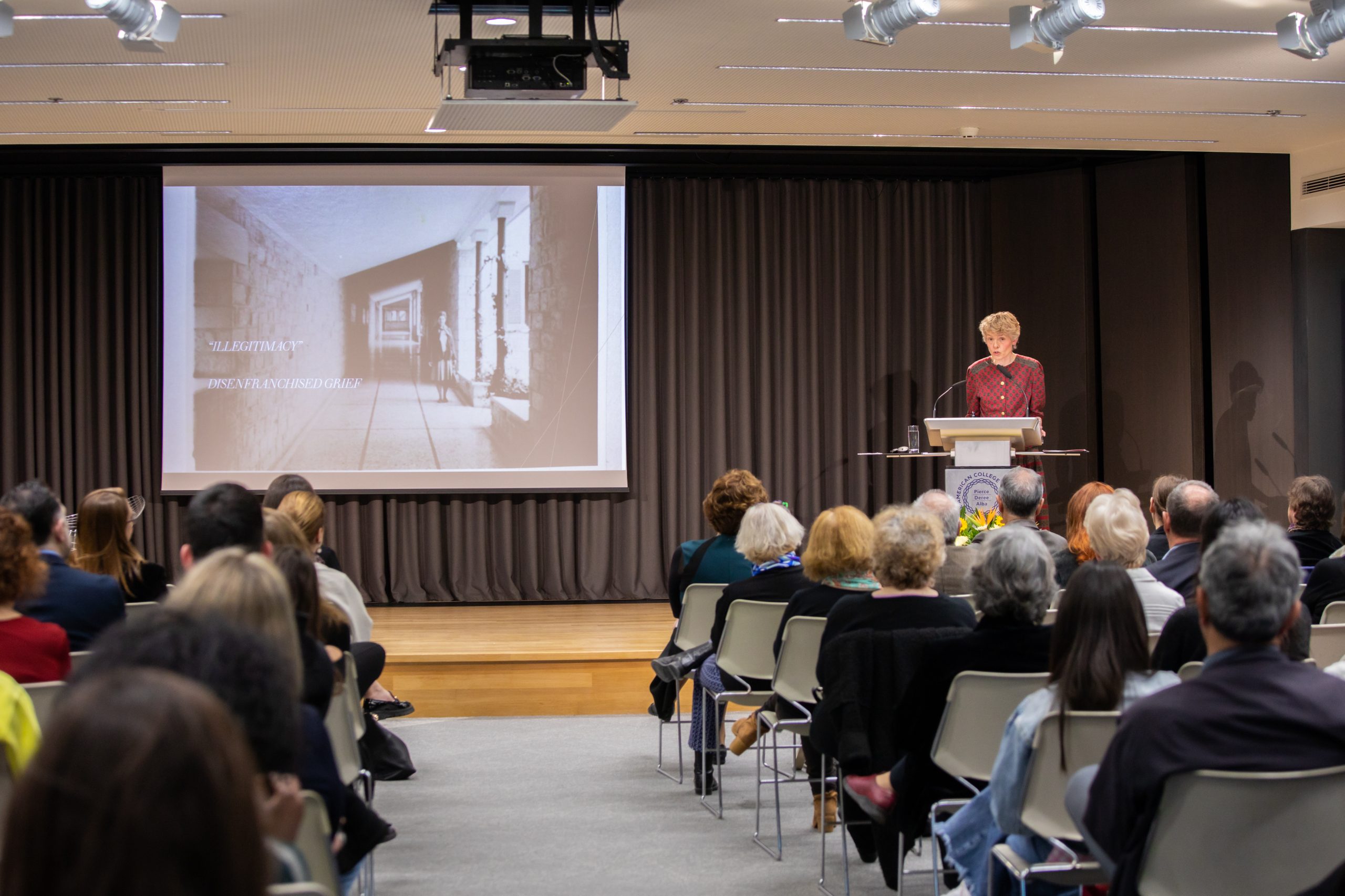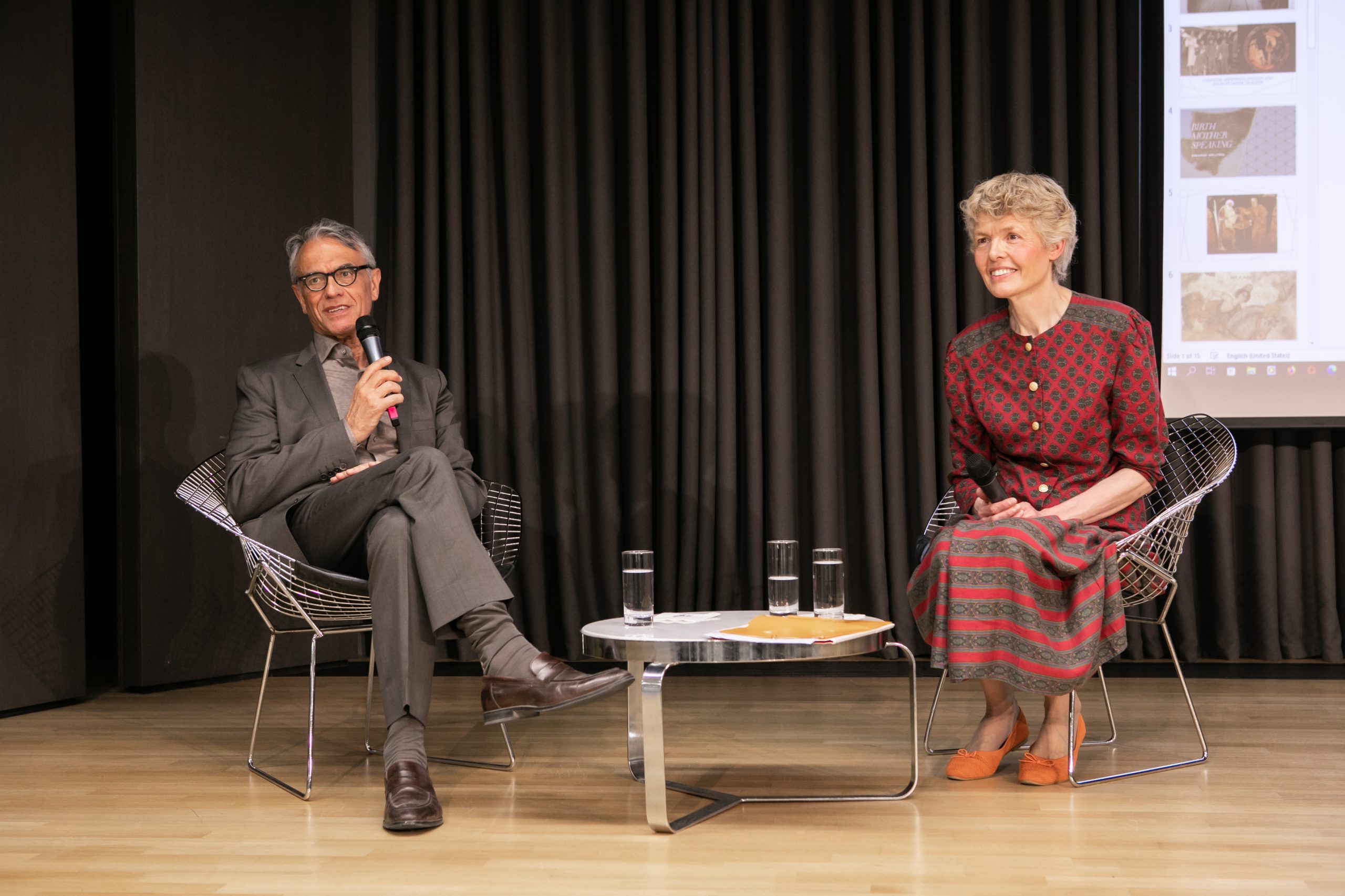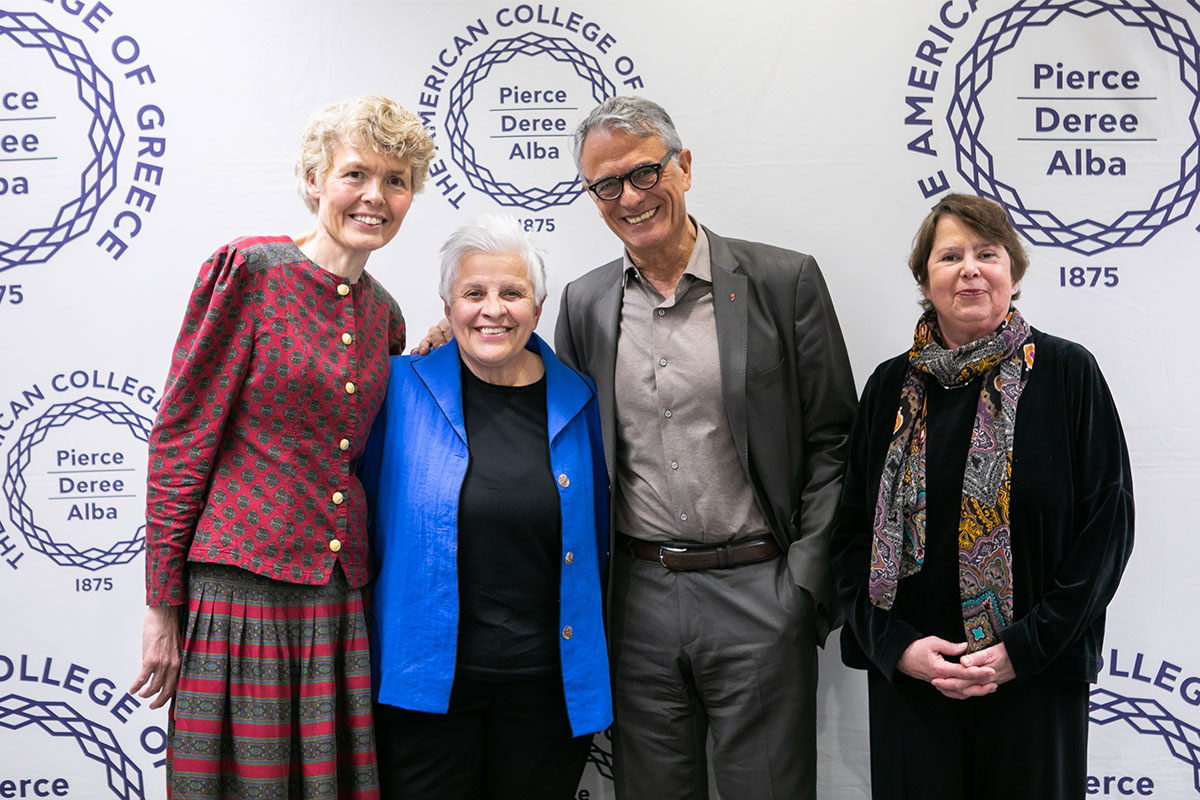
ACG recently welcomed classical scholar and linguist Gonda Van Steen as the featured speaker of the 27th Kimon Friar Lecture on April 25 at the ACG Events Hall. A packed audience from the ACG and local community came to hear Van Steen’s presentation on “Child Adoption: Greek Myth, Literature and Reality.” Professor Van Steen has a prolific academic background and is the first woman to hold the position of Koraes Chair of Modern Greek and Byzantine History, Language and Literature in the Center for Hellenic Studies and the Department of Classics at King’s College London, as well as being an Advisory Board Member of the ACG Institute for Hellenic Culture and the Liberal Arts (IHCLA).
Gonda Van Steen’s research on children’s adoptions from Greece to the USA in the 1950s and 1960s led her to look at texts from ancient and modern Greek literature with fresh eyes. In this lecture, she covered topics from the 5th century BCE Greek tragedy Sophocles’ Oedipus Tyrannus and also explored how the modern field of adoption studies and its terminology may help us to reconceptualize the famous story written by Georgios Vizyinos, Τὸ ἁμάρτημα τῆς μητρός μου, My Mother’s Sin.
Katerina Thomas, Dean of the Frances Rich School of Fine and Performing Arts, opened the event and gave the floor to Dr. Mary Cardaras, Director of the Demos Center, who introduced this year’s speaker. Dr. Cardaras, a Greek-born adoptee who fights for the restoration of Greek citizenship for some 4,000 Greek children, now adults, after the Cold War, fondly referred to Professor Van Steen as the “adoptee whisperer” and as a “treasure and gift to Greece and certainly to people she has helped. Were it not for her, this part of Greek history [lost children of Greece] would have remained obscured and misunderstood. She [Van Steen] helped me reset a compass that was confused about its direction and I have returned back to my roots.”
Professor Van Steen took the podium and discussed the topic of child adoption from different angles, combining insights from ancient Greek literature, modern adoption studies and real-life experiences. Overall, child adoption was an important part of ancient Greek society and is a recurring theme in mythology and literature. It provided a way for families to ensure their legacy and for orphaned or abandoned children to have a chance at a better life. In modern literature, child adoption is often used as a way to explore themes of identity, family, and belonging. These themes were also expanded during the Q&A with moderator Haris Vlavianos, an award-winning contemporary Greek poet and Professor of History at ACG.
Van Steen’s own work unraveled and documented the postwar adoption networks that placed more than 3,000 Greek children in the United States in a movement accelerated by the aftermath of the Greek Civil War. Her research has changed lives and she assists many now-adult adoptees to find their biological roots. As Professor Van Steen so eloquently stated:
Adoptees deserve uninhibited access to their identity records. Touches me and surprises me time and time again how important it is for them. Adoptees want to be restored as Greek citizens. It’s where they started. It’s part of their identity. They aren’t asking for something they didn’t once have.
If you would like to view the presentation, please click here.

